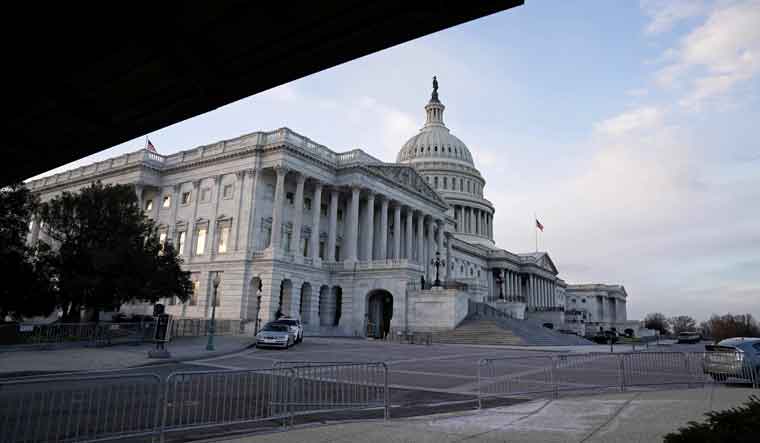Members of the United States Congress pushed through an increase to the nation's debt limit, albeit short-term, that would ensure that the US would not default on its bonds and thus avert an unprecedented financial crisis. The $480 billion increase in the country's borrowing ceiling cleared the Senate last week on a party-line vote. The congressional approval has now come through, and the president can sign it into law.
A default, which is when the US treasury runs out of money to pay bondholders across the world and its own bills, would have immense fallout on global financial markets built upon the bedrock safety of US government debt. Treasury Secretary Janet Yellen had told the US Congress that the Treasury Department will likely exhaust all of its extraordinary measures to avoid a default by October 18. Yellen warned Congress that the Treasury would run out of maneuvering room by mid-October.
Senate Majority Leader Chuck Schumer had said on Thursday that an agreement has been reached with Republicans to extend the government's borrowing authority into December. The Republicans had earlier refused to cooperate in passing a bill to raise the debt ceiling—the latter is a hot potato, and to vote for a bill that raises debt limits is considered politically toxic. Republican leader Mitch McConnell had earlier stated that he wanted the Democrats to take the politically uncomfortable debt ceiling vote on their own. "Republicans are not rooting for a debt limit breach," he said.
In their agreement, Republican and Democratic leaders edged back from a perilous standoff over lifting the nation's borrowing cap, with Democratic senators accepting an offer from McConnell. McConnell made the offer Wednesday shortly before Republicans were prepared to block longer-term legislation to suspend the debt limit and as President Joe Biden and business leaders ramped up their concerns that an unprecedented federal default would disrupt government payments to millions of people and throw the nation into recession.
The debt shutdown and political price for both Republicans and Democrats
The debt showdown left Democrats portrayed as big spenders, willing to boost the nation's now $28.4 trillion debt to pay the bills. Republicans, too, risk recriminations from all sides of their deeply divided party. In easing off the crisis, McConnell insulated his Republicans from further blame, but infuriated Trump and his allies, who are eager to skewer the Kentucky senator for giving in. Senator Ted Cruz said he told his colleagues during a private meeting before the debt vote that it was a mistake for Republican leadership to agree to this deal.
Once a routine vote to ensure the nation's bills are paid, raising the debt limit has become a political weapon. The tea party class of Republicans a decade ago brought the nation to the brink of default over the issue and set a new GOP strategy.
-Inputs from agencies




